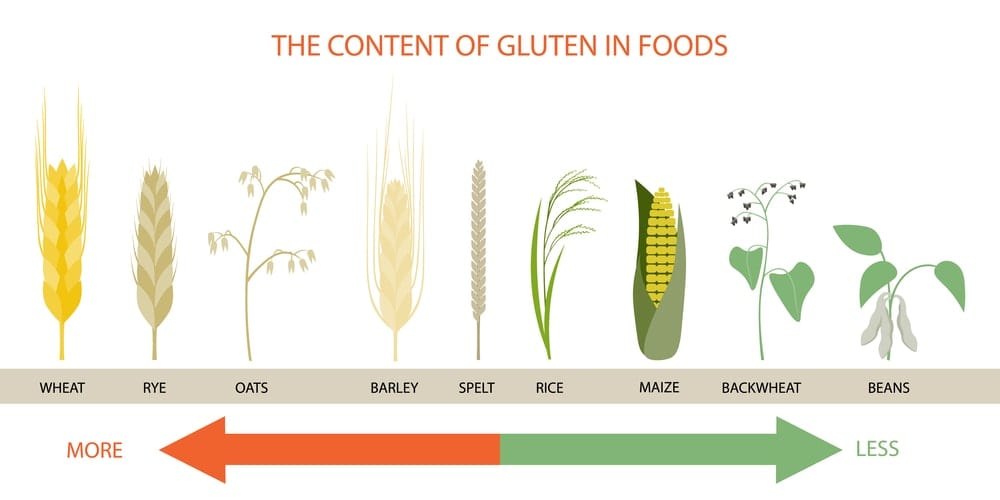Centennial Hills Gluten Intolerance Treatment
Centennial Hills Gluten Intolerance Treatment
Gluten intolerance is a term used to describe conditions such as celiac disease, wheat allergies, and gluten sensitivity. It has long been the subject of speculation by doctors, many of whom used to believe that the symptoms of gluten intolerance were not caused by any significant medical condition. Over the last decade or so, gluten intolerance has finally garnered awareness thanks to a larger body of research, and as a result has helped millions of people suffering from gluten-related diseases alleviate their symptoms.
Do you suspect that you may be gluten intolerant? Schedule a consultation with Dr. Chanu Dasari, a top Centennial Hills gluten sensitivity specialist. He will evaluate your symptoms and recommend the best treatment plan for you.
What Exactly IS Gluten?
Gluten is a protein found naturally in cereal grains such as wheat, rye, and barley. It is the compound responsible for the soft, chewy texture of your favorite baked foods, and can also aid the leavening process of bread. These and other desirable properties make it a useful additive in processed foods, improving the consistency and moisture content of these products.
Gluten is present in many of the foods that we consume every day. Most people are aware that it is found in products that contain wheat, such as bread, crackers, and pasta— however, it is also found in soy sauce, gravies and sauces, beer and some wines, and many more common grocery items that you may not expect.
Check the labels of the items in your fridge or cupboard— you’ll most likely find that at least half of them, if not more, contain wheat or gluten.
Symptoms Of Gluten Intolerance
People with gluten intolerance often do not recognize their symptoms as those of gluten intolerance, but rather believe that they are experiencing regular day-to-day discomforts. Many people just try to get used to irritating problems such as brain fog, headaches, regular digestive issues, and skin problems. Even more severe issues like depression can go undiagnosed as being a result of gluten intolerance for years. Joint pain is another common symptom to watch out for. Experiencing a combination of these symptoms is a telltale sign of gluten intolerance.
Centennial Hills Gluten Intolerance Diagnosis
If you suspect that you’re gluten intolerant, your physician will likely begin investigating by testing for Celiac disease, an autoimmune disease where the small intestine is damaged by gluten ingestion. Your doctor will probably take blood samples for lab analysis to test for gluten antibodies, and they may also recommend an endoscopy test to examine the lining of your small intestine for any abnormalities.
Gluten sensitivity is the next diagnosis that you would explore in the event that you do not have Celiac disease. Since few proven testing methods exist, your doctor may have their own approach to diagnosing this issue. The most common approach to testing for gluten sensitivity is simply recommending that you stop consuming gluten and see how you feel. If your symptoms clear up, they will know that you do have gluten intolerance and you should continue your gluten-free diet.
Gluten Intolerance Treatment Options in Centennial Hills
Unfortunately, the only current treatment for gluten intolerance is following a strict gluten-free diet. While awareness and acceptance of gluten intolerance as a legitimate medical concern has significantly increased in recent years, some medical experts don’t agree on the proper treatment regimen. Some doctors believe that all gluten should be strictly and permanently eliminated from the diet, while others believe that herbal treatments such as supplements can allow the patient to continue consuming small amounts of gluten.
It is worth mentioning that completely eliminating gluten from your diet has no additional health benefits besides clearing up symptoms of gluten intolerance. If your test results come back negative, or eliminating gluten from your diet does not improve your symptoms, you may introduce it back into your diet.
Centennial Hills Gluten Intolerance Treatment Expert Dr. Chanu Dasari
Dr. Dasari is committed to providing the best care to all of his patients. He is an affiliate of Centennial Hills Hospital, providing the best inpatient and outpatient surgical care closest to his patients. If you believe that you may be suffering from gluten intolerance and would like to have your symptoms evaluated by Dr. Dasari, contact his clinic, Minimally Invasive Surgery, at (702) 602-6600 to schedule a consultation.










